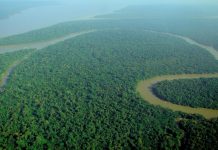
Brazil has introduced an ambitious roadmap to scale global climate finance to $1.3 trillion annually by 2035, setting the tone for the upcoming COP30 summit in Belém. The plan, known as the Baku to Belém Roadmap, outlines a coordinated approach to increase funding for developing nations grappling with the impacts of climate change and to accelerate the shift away from fossil fuels.
The 100-page document, developed after a year of negotiations, proposes a range of financial mechanisms from new taxes on high-polluting industries to expanded debt relief and easier access to private investment. It also calls on multilateral development banks to share more risk and prioritize grants over loans for the world’s poorest nations.
Brazilian President Luiz Inácio Lula da Silva said the effort represents a global test of political will. “The world must decide whether it has the courage to face reality,” he told delegates at a pre-summit gathering. Lula urged leaders to close the disconnect between diplomatic circles and the real world, adding that economic and environmental goals can no longer be pursued separately.
The plan arrives at a delicate moment for international climate diplomacy. While the European Union agreed to cut greenhouse gas emissions by 90 percent by 2040, the late-stage deal included flexibility measures that environmental advocates say weaken its impact. Meanwhile, the United Kingdom announced it would not yet invest in Brazil’s Tropical Forests Forever Facility, a $125 billion fund aimed at protecting rainforests.
Mukhtar Babayev, president of COP29 and a key architect of the roadmap, said that redirecting global finance toward low-carbon development is an immense undertaking. “We are intervening in how the world economy functions,” Babayev said. “Success will require sustained focus, accountability, and collective resolve.”
Lula met with European Commission President Ursula von der Leyen, Finnish President Alexander Stubb, and Chinese Vice Premier Ding Xuexiang to seek contributions to the new framework. According to Brazilian officials, the president personally appealed to Prime Minister Keir Starmer for British participation, but the UK declined for now.
The roadmap calls for a series of taxes including levies on aviation, maritime transport, luxury goods, and financial transactions to generate additional climate funds. Analysts say this approach could diversify the funding base beyond traditional government aid, which has declined in recent years.
UN Secretary-General António Guterres, speaking in Belém, urged world leaders to treat the $1.3 trillion financing goal as a red line for humanity. He said that overshooting the 1.5°C global temperature limit would expose billions of people to extreme risks, but that current technologies make a rapid turnaround possible.
Environmental advocates applauded Brazil’s leadership but cautioned that its own oil expansion plans must align with its rhetoric. “Lula spoke about justice and cooperation in a divided world,” said Andreas Sieber of 350.org. “Now Brazil must match those words with action.”
The success of COP30, which begins November 10, will depend on whether world leaders can translate financial commitments into implementation. As Lula put it, “The resources exist. What remains is the determination to act.”
Image is in the public domain and was created by MTur Destinos.





